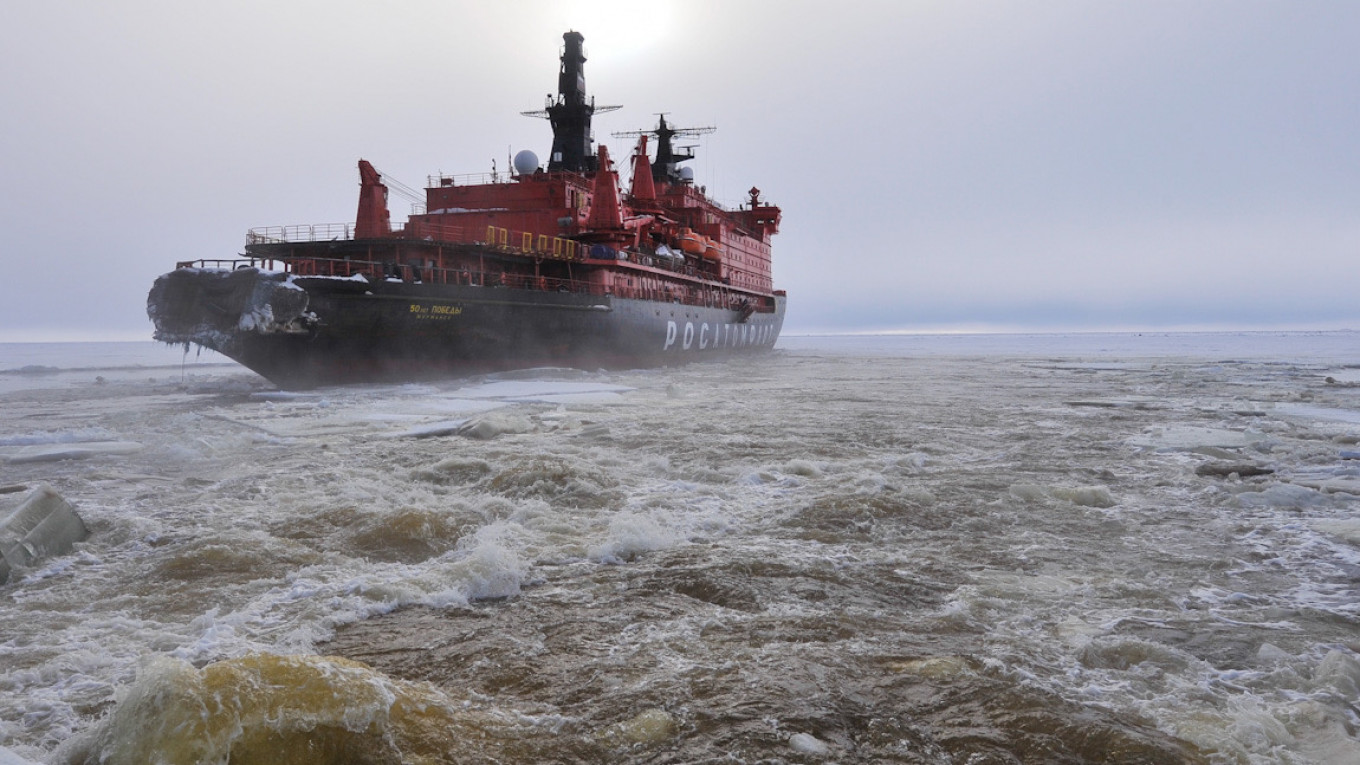
A new source of methane discharge has been discovered in the Arctic Ocean near eastern Siberia, raising concerns of a “new tipping point” that could speed up the pace of global warming, The Guardian reported Tuesday.
Scientists found the potent greenhouse gas bubbling from a depth of 350 meters in the Laptev Sea, with surface-level concentrations that vent into the atmosphere between four and eight times the normal amount. One of the six monitoring points showed methane concentrations 400 times higher than expected under the normal air-sea equilibrium.
“The discovery of actively releasing shelf slope hydrates is very important and unknown until now. This is a new page,” said Igor Semiletov, chief scientist onboard the Akademik M. Keldysh research vessel that’s part of a multi-year Russian-Swedish International Siberian Shelf Study expedition.
The discovery is prompting concerns that a new feedback loop that accelerates climate change may have already been triggered. A recent study co-authored by a member of the expedition found that the loop could be activated if the Arctic warms by just a few degrees.
“At this moment, there is unlikely to be any major impact on global warming, but the point is that this process has now been triggered,” Swedish scientist and study co-author Örjan Gustafsson told The Guardian from the vessel.
“This East Siberian slope methane hydrate system has been perturbed and the process will be ongoing.”
The Guardian reported that warm Atlantic currents driven by human-induced climate disruption are the likely cause of the massive methane discharge.
The Arctic is warming twice as fast as any other place on Earth and The Guardian reported that it is yet to begin freezing for the winter, already surpassing records for the latest date for sea ice formation after melting unusually early this spring.
This is potentially the third source of methane emissions from the shallower parts of the Laptev Sea and the East Siberian Sea. Semiletov’s expedition released first photos of a massive fountain of methane gas bubbling from the floor of the East Siberian Sea last fall.
The scientists stressed that their findings are considered preliminary until they analyze the data collected on the ground and have their studies peer-reviewed.
“The discovery of actively releasing shelf slope hydrates is very important and unknown until now,” Semiletov said. “Potentially they can have serious climate consequences, but we need more study before we can confirm that.”
https://news.google.com/__i/rss/rd/articles/CBMibGh0dHBzOi8vd3d3LnRoZW1vc2Nvd3RpbWVzLmNvbS8yMDIwLzEwLzI4L25ldy1tZXRoYW5lLWRpc2NoYXJnZS1kaXNjb3ZlcmVkLWluLXJ1c3NpYXMtYXJjdGljLWd1YXJkaWFuLWE3MTg3N9IBAA?oc=5
2020-10-28 07:30:36Z
52781150123081
Tidak ada komentar:
Posting Komentar